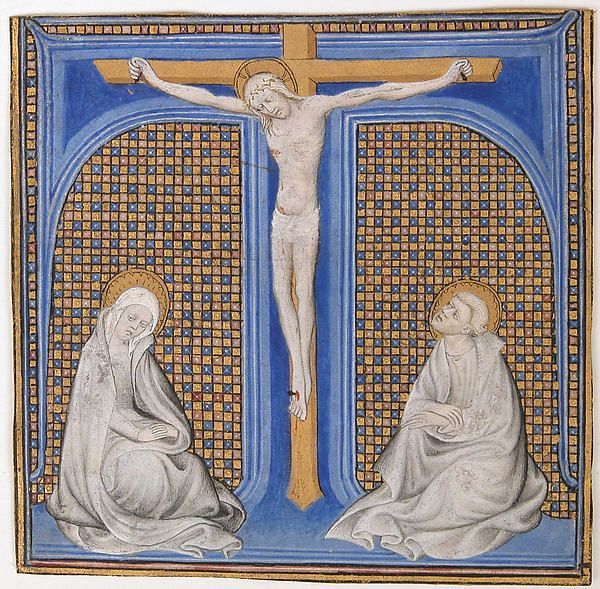The Beatitudes
Prayer: In the preparatory prayer I will beg God our Lord for grace that all my intentions, actions, and operations may be directed purely to the praise and service of his Divine Majesty.
History: It is to remember how our Lord, after choosing his twelve Apostles, delivered to them and to the great multitude that had gathered from the surrounding towns and villages the sublime discourse known as the Sermon on the Mount
Composition of place: It is to see with the eyes of the imagination the mountain of the Beatitudes. Many people seated on the ground around Jesus, with his disciples and apostles.
Prayer of petition: I will ask for the grace I desire. It is to ask for light to know the true life, which the supreme and true King, Christ Our Lord, points out, and for the grace to imitate Him.
Christ on the Mount
Having enrolled His soldiers, Christ raises His standard and issues his proclamation. It is the program and code of the new Kingdom.
The Gospel of Saint Luke tells us the story, “Jesus went out onto a mountain to pray and He passed the whole night in prayer to God. And when the day was come, He called unto him his disciples and He chose twelve of them, (the Apostles)… and coming down with them He stood in a plain place, with the company of his disciples and a very great multitude of people…and lifting up his eyes on his disciples, said…” (Lk. 6: 12-20)
” How blessed are the poor in spirit: theirs is the kingdom of heaven.
Blessed the gentle: they shall have the earth for their heritage.
Blessed those who mourn: they shall be comforted.
Blessed those who hunger and thirst for what is right: they shall be satisfied.
Blessed the merciful: they shall have mercy shown them.
Blessed the pure in heart: they shall see God.
Blessed the peacemakers: they shall be called children of God.
Blessed those who are persecuted in the cause of right: theirs is the kingdom of heaven.
Blessed are you when people abuse you and persecute you and speak all kinds of calumny against you on my account. Rejoice and be glad for your reward will be great in heaven”! (Mt 5:1-12).
Encounter with Jesus
In the Beatitudes, we encounter, first of all, a person: The Divine Master. It is of Him that Isaiah speaks when he announces that a great light has shone on those who dwell in the land of deep shadow (cf. Mt 9:1). It is he whom Isaiah calls; “Wonder – Counselor, Mighty-God, Prince-of-Peace” (9:5).
It is an encounter with Christ
He is the one who takes the initiative. He is the one who comes to meet us. The apostle Luke says, “And he came down with them and stood on a level place, with a great crowd of his disciples and a great multitude of people from all Judea and Jerusalem and the seacoast of Tyre and Sidon, who came to hear him and to be healed of their diseases; and those who were troubled with unclean spirits were cured. And all the crowd sought to touch him, for power came forth from him and healed them all.” (Lk 6: 17-20)
He is the one who came down from the heights to heal our diseases, to clean our unclean spirits. He is the one who came down from the heights, to show us the way.
The prophet Isaiah says, “Come, let us go up to the mountain of the Lord, to the house of the God of Jacob; that he may teach us his ways and that we may walk in his paths” (Is 2:3)
The Gospel, echoing this, declares that when Jesus saw the whole crowd of people who were following him, “he sat down, his disciples came to him. And he opened his mouth and taught them.” (Mt 5: 1-2)
Jesus stands now with the Twelve around Him, like a King, like a Commander, like a Master. Like a King, He proclaims the titles of honor that his kingdom possesses. Like a Commander, He points out his plan of battle. Like a Master, He teaches what is true happiness.
Jesus opens his mouth
And He explains the blessed path that leads to the top, to the very peak. And the blessed path is Christ Himself, because in each Beatitude Christ Himself is found.
He himself is poor in spirit, gentle and merciful. He himself is pure of heart. He himself knew life’s pains and sufferings. He himself was hungry and thirsty for a greater justice. He himself was persecuted for justice: he went so far as to suffer the passion and death on the Cross.
Christ leads his disciples towards the fulfillment of the Eight Beatitudes. Above all, he himself fulfills them.
Christ, the Good Master
He teaches us the way of perfection, or better the shortcut of perfection, the narrow path of the Beatitudes.
It is the way of renunciation. The mount of the beatitudes is very near in spirit to mount Calvary. Both have the same shape, both are marked with the sign of the Cross; on both, at the top you will find an altar.
What a hard walk! And on the top, everything will be offered, possession, honor, friends, Mother, and even his self-life.
Now, we are the ones who are asking by the path. Lord, which one is the path of perfection?
And Christ says…
“Blessed are the poor in spirit, for theirs is the kingdom of heaven” (Mt 5:3).
Poverty is the first step toward the Kingdom.
This Beatitude reflects our Master’s poverty and his love for the poor.
In asking for this renunciation, Jesus set for us the invitation of sharing most closely in the renunciation of the Incarnation.
Paul reminded the Christians of Corinth of this to encourage them to be generous with the poor, imitating the example of Christ, who “made himself poor though he was rich, so that you might become rich by his poverty” (2 Cor 8:9).
St. Thomas comments: Jesus “endured material poverty to give us spiritual riches” (Summa Theol., III, q. 40, a.3).
Everyone who accepts his invitation and voluntarily follows the way of poverty is led to enrich the human race spiritually. Christ is the teacher and spokesman of poverty who makes us rich, and teaches us to enrich others.
If we look at this Teacher, we learn from him the true meaning of Gospel poverty and the greatness of the call to follow him on the path of this poverty.
First of all, we see that Jesus really lived like the poor.
According to St. Paul, he, the Son of God, embraced the human condition as one of poverty, and in this human condition he lived a life of poverty.
His birth was that of a poor person, as shown by the stable in which he was born and the manger in which his Mother placed him.
For 30 years he lived in a family in which Joseph earned his daily bread by working as a carpenter, work he himself later shared (cf. Mt 13:55; Mk 6:3).
In his public life he could say of himself: The Son of Man has nowhere to lay his head” (Lk 9:58), as if to show his total dedication to his messianic mission in conditions of poverty.
He died as a slave and poor man, literally stripped of everything, on the Cross. He chose to be poor to the very end.
Jesus however affirms for everyone the need to make a basic decision regarding earthly goods.
No one, he says, can serve two masters. One either serves God or serves mammon (cf. Lk 16:13; Mt 6:24). The (cf. idolatry of mammon, or money, is incompatible with serving God. Jesus notes that the rich are more easily attached to money (called mamona in Aramaic, meaning “riches”), and have difficulty in the turning to God: “How hard it will be for the rich to enter the kingdom of God! Indeed, it is easier for a camel to go through a needle’s eye than for a rich man to enter the kingdom of heaven” (Lk 18:24-25; par.)
The Gospel is clear on this point: Jesus asks those he called and invited to follow him to share his own poverty by renouncing their possessions, however great or few they may be.
It was a fundamental requirement, repeated many times, which meant giving up home and property (cf. Mk 10:29; par.), or boat (cf. Mt 4:22), or even everything: “None of you can be my disciple if he does not renounce all his possessions” (Lk 14:33).
“For consider your call, brethren”! (1 Cor 1:26) Consider your call that began in your baptism. John Paul II, says in his letter Novo Millennio Ineunte, “When you ask somebody: “Do you wish to receive Baptism?” it means at the same time to ask [him]: “Do you wish to become holy?” It means to set before [him] the radical nature of the Sermon on the Mount…”
We are invited to imitate Christ. We are invited to follow the path of perfection. The path is clear and sure. It is the path of the Beatitudes and the path of the cross. On the top of the Mountain there is an altar, already prepared for the holocaust, the sacrifice. The firewood, the wood of the cross is also already there.
Today the words of Isaiah are repeated for us, “Come, let us go up to the mountain of the Lord…” The love of Christ will consume the offering, and this will be an offering acceptable to God. It is the love that Christ brought to the earth, “I came to cast fire upon the earth; and how I wish that it were already kindled!” (Lk.12:49)
“Come, let us go up to the mountain…”
We took this commitment of imitation in our baptism, we renewed this commitment in our confirmation, and some of us sealed this commitment in entering into religious life. We cannot go back.
What deep meaning the Christian vocation has! What a challenge and what an invitation for us! How can we fail to ask God to form our daily life according to the spirit of the eight beatitudes? Only by growing in this spirit are we able to convert the world and prepare ourselves for the kingdom of heaven.
Let us ask to grow in the school of Jesus, poor, meek and humble of heart, that we may share in his blessedness, today and forever.

Take, Lord,
and receive all my liberty, my memory, my understanding, and my entire will, all that I have and possess. Thou hast given all to me. To Thee, O Lord, I return it. All is Thine, dispose of it wholly according to Thy will. Give me Thy love and Thy grace, for this is sufficient for me.
(Spiritual Exercises #234. Louis Puhl SJ, Translation.)



